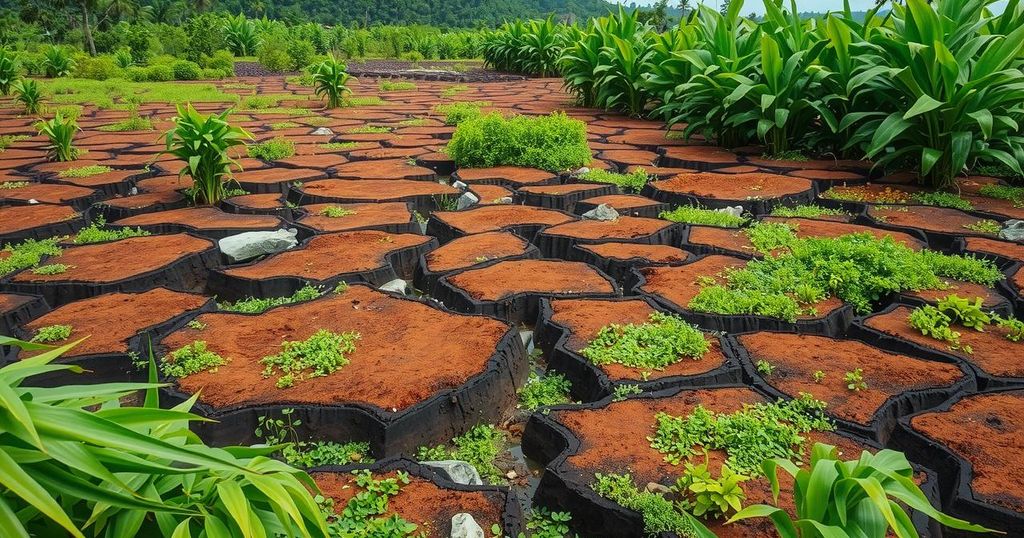Gold mining in the Peruvian Amazon has severely impacted peatlands, causing more damage in the last two years than in the previous three decades. Research indicates a loss of over 550 hectares and a significant increase in carbon emissions, with mining activity expected to grow if regulations are not enforced. Scientists emphasize the urgent need for protection and monitoring of these vital ecosystems to mitigate environmental harm.
Recent research published in the journal Environmental Research Letters reveals alarming data regarding gold mining in the Peruvian Amazon, particularly its detrimental impact on peatlands. In just two years, artisanal gold mining has caused more destruction to these carbon-rich ecosystems than in the prior three decades combined, leading to serious environmental concerns. The Madre de Dios region has been significantly affected as small-scale gold mining operations expanded along the rivers, releasing substantial amounts of carbon into the atmosphere.
Utilizing over 35 years of satellite data from NASA’s Landsat program, researchers have documented the encroachment of gold mining into Amazonian peatlands. These important ecosystems serve as carbon sinks and have experienced the loss of over 550 hectares, contributing between 0.2 and 0.7 million tons of carbon emissions. A startling statistic reveals that over 55% of this destruction has occurred in the last two years alone.
The significance of peatlands cannot be overstated; they store carbon more densely than forests. Thus, the loss of peatland can drastically affect greenhouse gas emissions. Currently, mining activities in these areas represent about 9% of the total mining operations in the region, with projections indicating that this could rise to 25% by 2027. Presently, 63 out of 219 peatland areas are under threat, endangering over 10,000 hectares and potentially releasing 14.5 million tons of carbon.
It is notable that scientific awareness of these peatlands only emerged in 2012, and now, scientists face the unfortunate task of monitoring their decline. Dr. John Householder, the lead author of the study, expressed concerns about the rapid growth of mining in these sensitive areas, attributing it to improved accessibility and insufficient legal protections. He emphasized, “If we do not slow down the destruction, the damage to the Amazon’s peatlands could be permanent, with serious environmental, social, and economic impacts down the line.”
Householder further stated the urgency of the situation, noting the risk of losing large undeclared peat deposits before they could be studied. He declared, “What our paper shows is that even within a human generation, it is quite possible that large peat deposits can disappear from the landscape, before science has had a chance to describe them.”
The research findings present a critical wake-up call for the need to protect the already vulnerable peatland ecosystems in the Peruvian Amazon. Continued monitoring and enforcement of regulations are essential to mitigate the ongoing loss of these carbon-rich landscapes and their substantial implications for climate change.
In conclusion, the study highlights an alarming increase in peatland destruction due to artisanal gold mining in the Peruvian Amazon. Over half of the damage has occurred in the past two years, signifying an urgent need for protective measures. The findings underscore the importance of peatlands in carbon storage and the potential future implications of continued mining activities. Enhanced legal enforcement and scientific exploration of these ecosystems are critical to prevent irreversible damage.
Original Source: www.eurekalert.org




